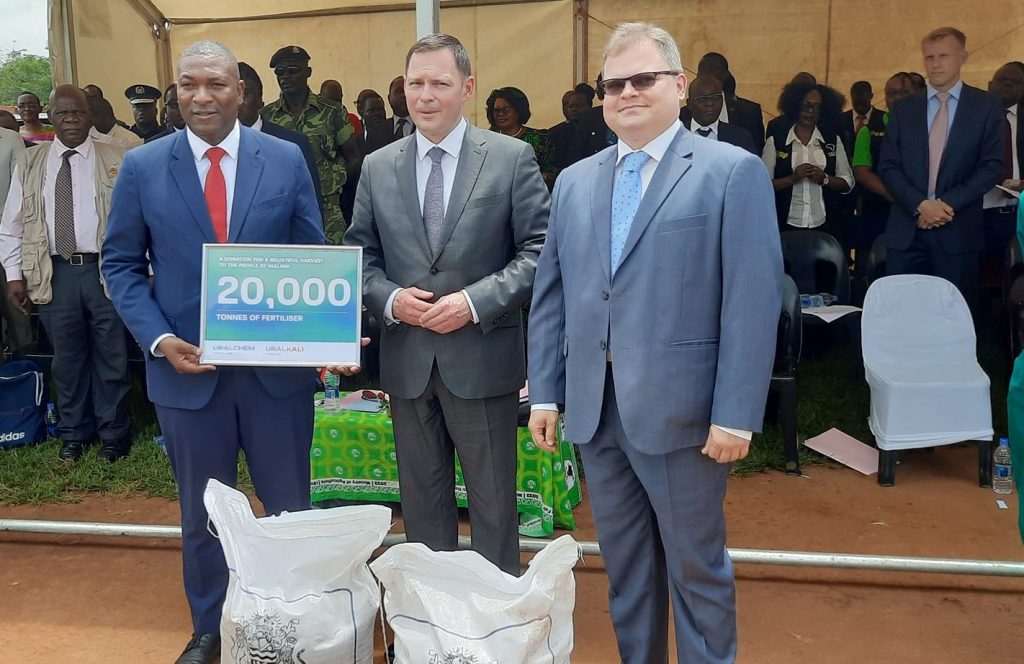During her visit recently, Norway’s Deputy Minister of International Corporation Bjorg Sandkjaer announced additional K8.2 billion funding to Malawi. However, one thing was clear: no coin will go directly into Malawi Government coffers as tales of abuse of public resources still haunts the donor community. Our News Analyst CLEMENT CHINOKO engaged her in an exclusive interview. Excerpts:
Sandkjaer: We need assurances that the money is spent with transparency
Q:Following your visit, how can you sum up Malawi’s socioeconomic situation?
A: First of all, the Cyclone Freddy has had devastating consequences on the nation. We are talking about both food security and challenges in the health sector that Norway will also try to see if we can partner to help respond to. It is particularly challenging because it comes on top of other problems. The country is recovering from the Covid-19 pandemic, other cyclones and, of course, the consequences of the war in Ukraine which has affected fertiliser prices and good security. So, they are challenges around and we have got good partnership with government in the sectors where we are working in such as health, agriculture and education to ensure we address some of the challenges.
Q:What are the fresh commitments Norway has made to aid the country’s efforts to cope with these challenges?
A: We have long standing commitments with Malawi. Our annual support in all sectors is to the tune of around $13 million. The additional support is $2 million [about K2.06 billion] towards cyclone recovery efforts and in addition. We have seen that the war in Ukraine is having consequences here as well. The Norwegian Parliament has allocated funds to alleviate the consequences in food security and humanitarian space in the number of countries in Middle East and Africa, including Malawi. We are allocating $6 million (K6.2 billion) on top of what we are already providing for the agricultural sector and food security. So $2 million plus $6 million is the short answer to your question.
Q:So, how are you channelling these funds considering that many developing partners aren’t giving the Malawi Government directly?
A: In the agricultural sector, we are working with the partners such as the United Nations and the civil society and the Ministry of Agriculture to provide support for all the different aspects of the value chain in food production. From input factors, smallholder farmers reducing the post-harvest losses and getting that food to the markets. While the $2 million will be channeled through the World Food Programme and Unicef.
Q:What I am learning is that Norway is still not in the business of directly injecting its support towards the government purse?
A: We have got good experiences of working together with partners in those joint programmes and through the World Bank as well.
Q:A host of partners withdrew their direct funding towards government due to abuse of resources. Currently, government is appealing to the partners to revert to direct support. Is this something Norway is considering?
A: We are working with the Malawi Government to ensure that those checks and balances should be there. It’s something we are discussing, but we are not there yet.
Q:Are your impressed with efforts Malawi is making to enhance transparency and accountability?
A: It is very important for us as development partners when we bring our taxpayers’ money, we need those assurances that the money is spent with transparency. And, the mechanisms that are there now are set up are there to help us ensure that. We have also seen the efforts of the Anti-Corruption Bureau. We would like to support those efforts.
Q:What message do you have for the Government of Malawi when it comes to the fight against corruption?
A: We are seeing the positive development with the head of the Anti-Corruption Bureau’s [Martha Chizuma] efforts to increase accountability and transparency. We believe we see political will as well from the president [Lazarus Chakwera] himself to be more transparent with issues of corruption. One reason why it is important for us is that we want to see accountability in the funds that we provide and most importantly, if there is corruption, it takes money away from development and welfare of the people of Malawi. Our efforts are to support the government to be more transparent and more accountable.
Q:Going forward, how do you want to strengthen the partnership between the two countries?
A: We have a long standing partnership with the civil society organisations and Norway as a government as well. We need to have open discussions. We are having those open discussions. In particular right now with the Cyclone Freddy. We are also trying to address. In addition, we have an institution called Norfund which supports businesses in investing in Malawi and other countries. There are a number of investments in the agricultural sector. So, just to add that the partnership with the private sector is important.
The post Norway’s K8bn re-awakening first appeared on The Nation Online.
 Moni Malawi
Moni Malawi 

